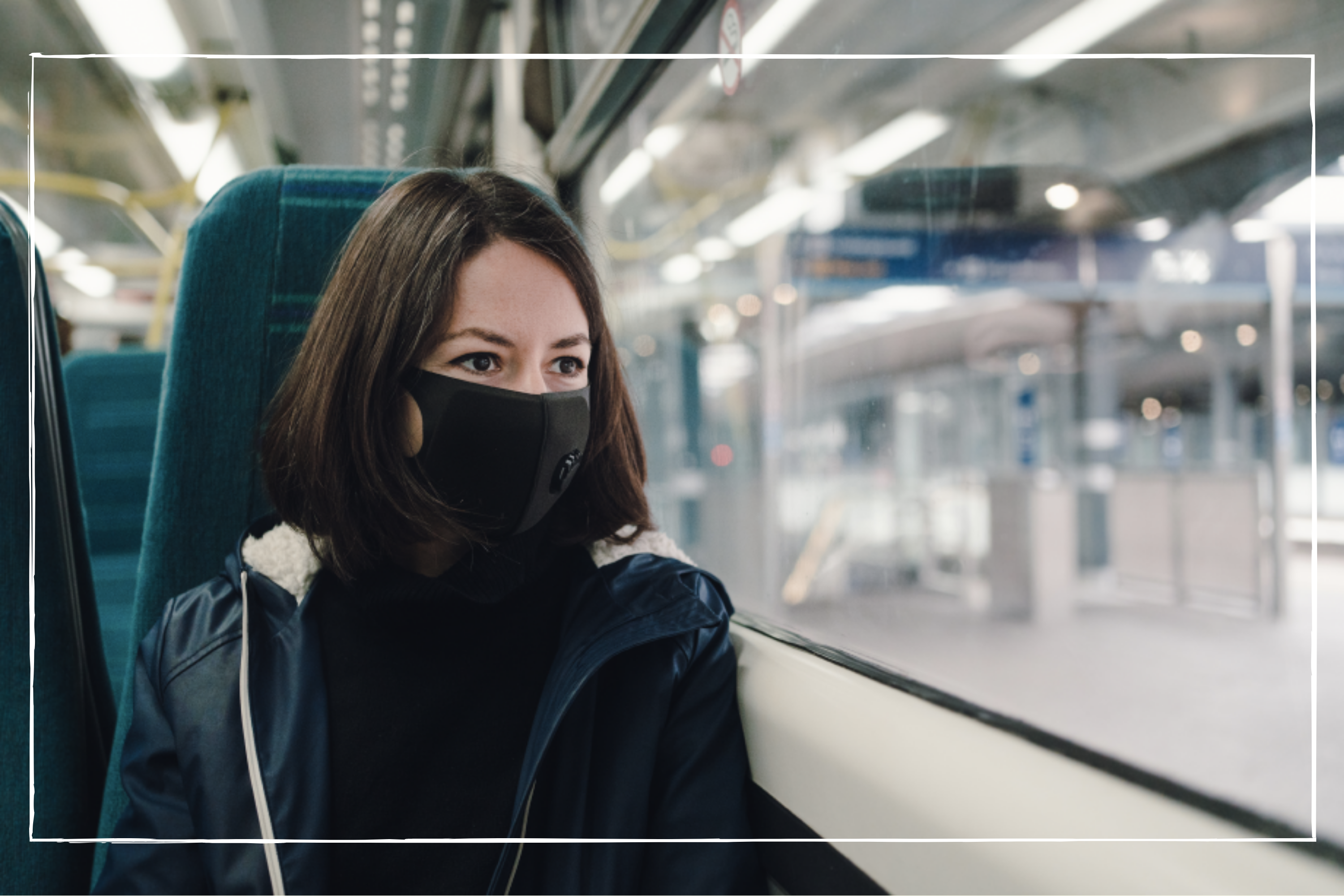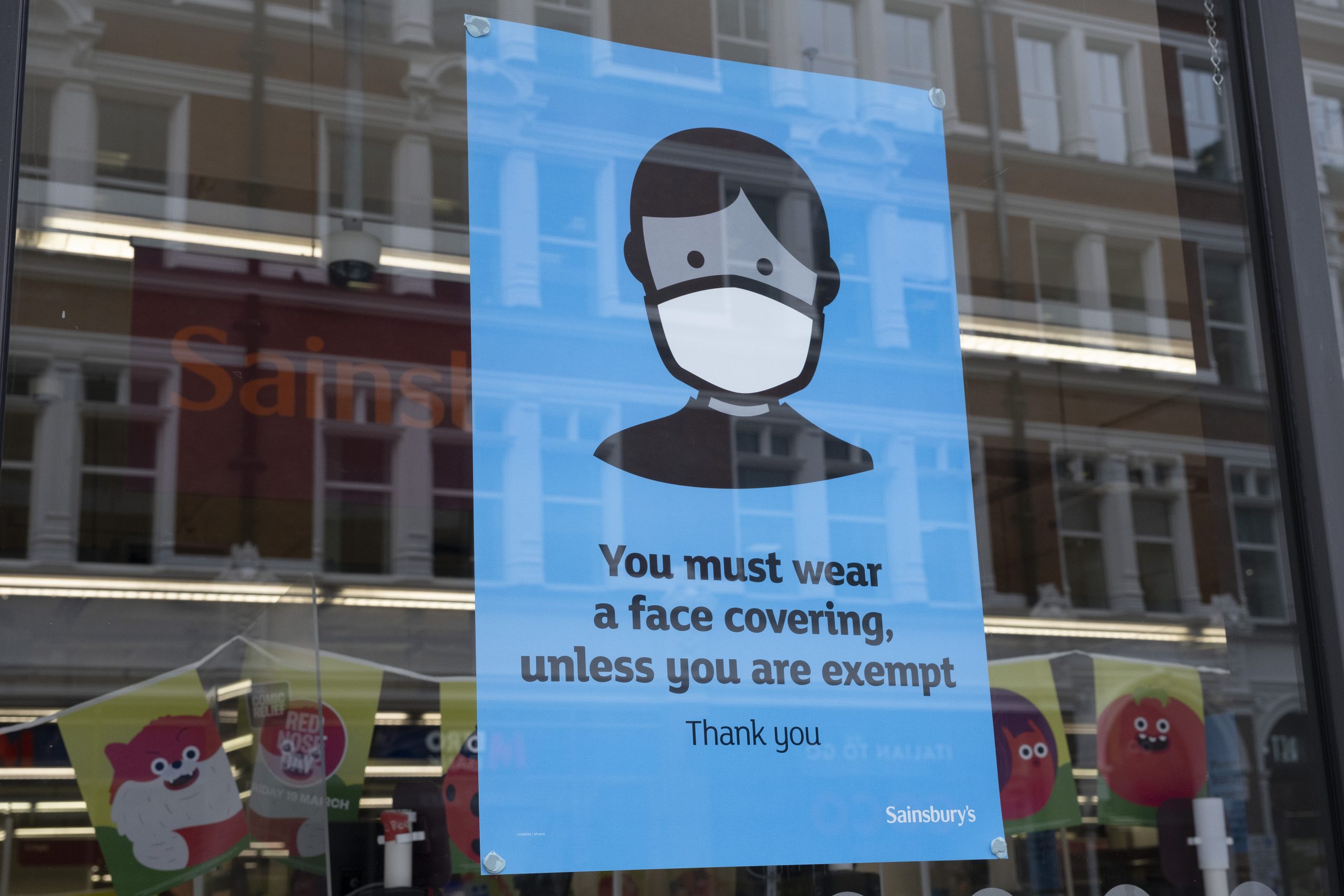Face mask rules: what are the UK guidelines on face coverings on trains, supermarkets and hospitals?


With new Plan B measures coming into effect, many are wondering what the new face mask rules are for transport, shops and hospitals.
A rise in cases following the discovery of the new Omicron variant has led to new national protocol across England. Prime Minister Boris Johnson announced that a renewed focus on booster Covid jabs, proof of double vaccination in certain venues and a return to mandatory face masks were all to take place under 'Plan B'. With these guidelines hoping to prevent us from going back into lockdown and experiencing another affected Christmas.
Much like other places in the UK, the public must now wear a face covering in certain public places. Unless otherwise exempt.
Face mask rules in England
Prime Minister Boris Johnson confirmed that face masks will once again be mandatory in England in the following public places (unless exempt):
- Supermarkets, shops and shopping centres
- Hospitals, pharmacies and GP surgeries
- Public transport: including trains, trams, buses, coaches, taxis, ferries and planes.
- Museums, art galleries, cinemas, indoor theatre and concert halls
- Indoor aquariums, zoos and farms
- Indoor theme parks, bowling alleys, play areas and gaming arcades
- Post offices, banks and money-based businesses
- Indoor sports spaces
- Community spaces: Village halls, social clubs, libraries and places of worship
- Indoor hair and beauty salons, barbers, hotel spas, tattoo and piercing parlours.
These new measures come into effect from December 10, 2021. And are part of the government's Plan B approach, in response to the new Omicron variant.

Places where people are exempt from wearing face coverings are food and drink venues. Like restaurants, bars, pubs, cafes and night clubs. Face masks must also be worn in communal areas of schools, in an effort to stop schools closing again.
The government website states that the new face mask rules are "based on current scientific evidence and is subject to change". This means the public should continue to follow procedure until No. 10 says otherwise.
Parenting advice, hot topics, best buys and family finance tips delivered straight to your inbox.
Staff who work in these venues where masks are mandatory are also obliged to wear one. Though transport workers are the exception.
You are required to wear a face covering on entering any of these settings and must keep it on until you leave unless you are exempt or have a reasonable excuse for removing it.
Face mask rules in Scotland
The Scottish government have confirmed that face masks are mandatory in "most indoor public places in Scotland". This includes:
- Shops and supermarkets
- Bars, restaurants, cafes and nightclubs
- Places of worship
- All public transport (including stations and bus stops)
- At work (including tradespeople working in people’s homes)
These face mask rules apply to everyone minus those aged 11 and over. Or individuals who are exempt for medical reasons.
Whilst face coverings must be worn in hospitality venues, they can be temporarily removed "when sitting, eating or drinking in a bar or restaurant".
Face mask rules in Wales
The Welsh government website states that face masks must be worn in indoor public places and whilst using public transport.
"You do not have to wear face coverings in places where food and drink is served," they add, highlighting pubs, cafes and restaurants as places where this is applicable. And additionally, wedding and civil partnership venues are also excluded from the list.
Like Scotland, these rules are applicable to those aged 12 and over. Though they don't apply to those with a medical exemption.
Face mask rules in Northern Ireland
Northern Ireland ministers have confirmed that the public have to currently wear face masks in all indoor settings. This includes:
- Shops and supermarkets
- Public transport (including stations, airports and bus stops)
- Private school transport
- Banks
- Cinemas
- Places of worship
- Government offices
- These face mask rules have been in place since May 24, 2021.
How do face coverings help to reduce the spread of COVID-19?
The government have made face masks mandatory again as they are considered to reduce transmission of the virus.
"Smaller droplets, called aerosols, can stay in the air indoors for at least 5 minutes, and often much longer if there is no fresh air," states Gov.uk. "Face coverings reduce the dispersion of these droplets, meaning if you're carrying the virus, you're less likely to spread it when you exhale."
Indeed one 2021 study concluded that there was evidence to show that widespread mask use did "reduce community transmission".
What if I am exempt from wearing a face mask?
Though face coverings are once again mandatory, those that are exempt will not need to provide proof when shopping or travelling.
Individuals are considered exempt for age, health or disability reasons.
"Please be mindful and respectful of such circumstances, noting that some people are less able to wear face coverings, and that the reasons for this may not be visible to others," reads a statement on the government website.
The face mask rules are not legally binding. And so those that do not wear a mask will not be refused entry or discriminated against.
If you however wish to carry an exemption card which outlines that you are exempt for age or health reasons, you can download your template from the government website.
Video of the Week:

Emily Stedman is the former Features Editor for GoodTo covering all things TV, entertainment, royal, lifestyle, health and wellbeing. Boasting an encyclopaedic knowledge on all things TV, celebrity and royals, career highlights include working at HELLO! Magazine and as a royal researcher to Diana biographer Andrew Morton on his book Meghan: A Hollywood Princess. In her spare time, Emily can be found eating her way around London, swimming at her local Lido or curled up on the sofa binging the next best Netflix show.